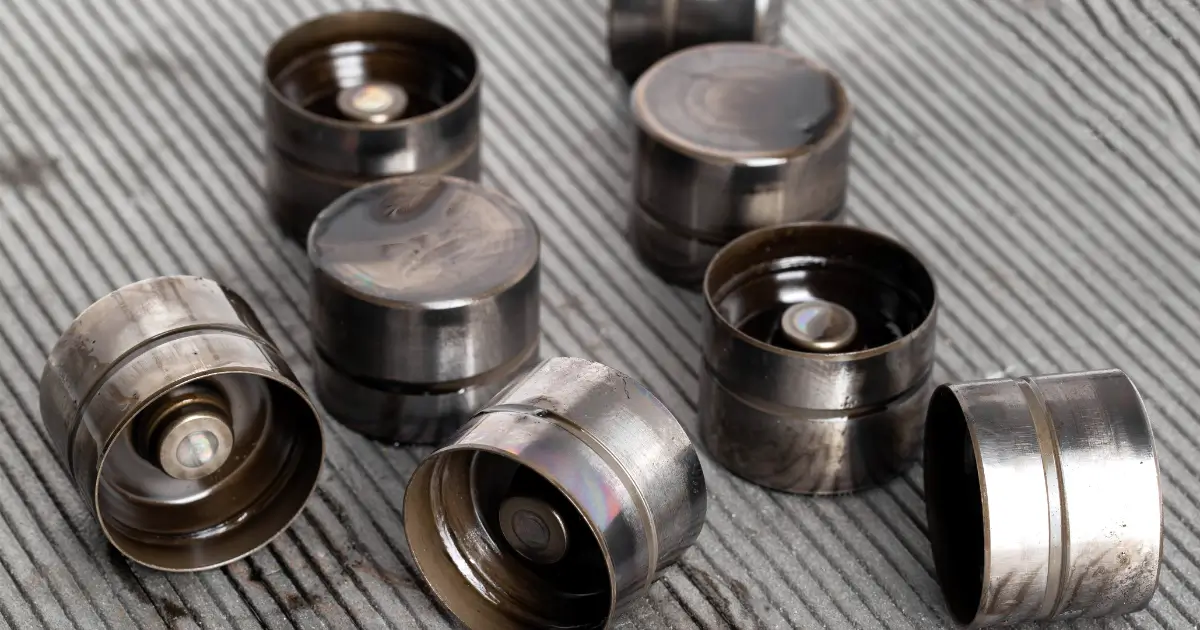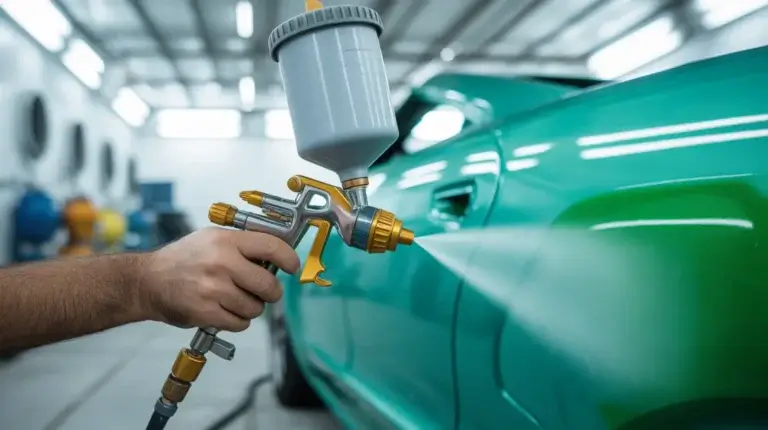Introduction to Engine Knocking
Addressing engine knocking is a crucial aspect of vehicle maintenance that can significantly impact your car’s performance and longevity. This unsettling noise is more than just an annoyance; it’s a sign that your engine may be experiencing issues that require immediate attention.
In this comprehensive guide, we’ll explore the various facets of engine knocking, from its common causes and how to diagnose it, to effective solutions and preventive measures. Whether you’re a seasoned car enthusiast or a daily commuter, understanding how to address engine knocking is essential for ensuring your vehicle runs smoothly and remains in optimal condition.
Join us as we delve into the best practices for dealing with this common engine issue, equipping you with the knowledge you need to maintain your vehicle’s health and performance.
Common Causes of Engine Knocking
Engine knocking, a concern for many vehicle owners, can be attributed to several factors. Understanding these common causes is the first step in addressing engine knocking effectively. Here’s a look at the typical reasons behind this unsettling noise and how they impact your vehicle’s performance.
Low-Quality or Incorrect Fuel
One of the most frequent culprits of engine knocking is using fuel with an octane rating too low for the vehicle’s engine. Lower octane fuel can combust unevenly, leading to knocking sounds. This is particularly relevant for engines designed to operate on high-octane fuel.
Carbon Deposits
Over time, carbon deposits can accumulate on the engine’s combustion chamber surfaces. These deposits can alter the combustion process, leading to “hot spots” that ignite the fuel prematurely, causing knocking.
Incorrect Ignition Timing
If the spark plugs ignite the fuel-air mixture too early or too late in the combustion cycle, it can cause knocking. Modern vehicles usually control ignition timing automatically, but malfunctions can disrupt this delicate balance.
Worn or Faulty Engine Components
Worn-out spark plugs, damaged rods, or faulty knock sensors can also lead to engine knocking. These components are vital for the smooth operation of the engine’s combustion process.
Engine Overheating
An overheated engine is more prone to knocking because high temperatures increase the pressure inside the combustion chamber. This can lead to the fuel-air mixture detonating prematurely.
Using the Wrong Oil Viscosity
Engine oil of the wrong viscosity can fail to lubricate the engine properly, increasing friction and heat, which can contribute to knocking sounds. It’s crucial to use the oil recommended by the vehicle’s manufacturer.
Understanding the common causes of engine knocking is crucial in diagnosing and addressing this issue effectively. By recognizing these factors, vehicle owners can take proactive steps to mitigate engine knocking, ensuring their vehicle runs smoothly and maintains its performance and longevity.
Diagnosing Engine Knocking
Diagnosing engine knocking promptly can prevent minor issues from evolving into major repairs. Identifying the exact cause of the knocking sound involves a systematic approach and sometimes, the use of specialized tools. Here’s how to diagnose engine knocking effectively, safeguarding your vehicle’s health and performance.
Step 1: Listen to the Knocking Sound
The first step in diagnosing engine knocking is to listen carefully to the sound. The nature of the knock can provide initial clues about its cause. For instance, a consistent knock that becomes faster with engine speed may indicate a mechanical issue, whereas a random knock could suggest problems with combustion.
Step 2: Check for Simple Causes
Before diving into more complex diagnostics, check for simple causes of engine knocking. This includes ensuring the fuel in your vehicle matches the manufacturer’s recommended octane rating and inspecting the oil level and condition.
Step 3: Use an OBD2 Scanner
Modern vehicles equipped with an OBD2 (On-Board Diagnostics) port can provide valuable information about engine knocking. Connecting an OBD2 scanner can reveal error codes that help pinpoint issues such as misfires, timing problems, or sensor failures.
Step 4: Inspect Spark Plugs and Ignition System
Faulty spark plugs or issues with the ignition system can lead to improper combustion, resulting in engine knocking. Inspecting and, if necessary, replacing spark plugs can eliminate these as potential causes.
Step 5: Evaluate the Engine’s Internal Components
If the knocking persists, it may be due to worn internal engine components, such as bearings, rods, or pistons. This diagnosis typically requires a professional mechanic, as it involves more in-depth inspection and potential disassembly of engine parts.
Step 6: Consult a Professional
When initial diagnostics don’t reveal the cause of the knocking or if the repair is beyond your skill level, consulting a professional mechanic is the next step. They can perform a comprehensive diagnosis, often using advanced diagnostic tools and techniques.
Diagnosing engine knocking accurately is crucial for effective treatment and ensuring the longevity of your vehicle. By following these steps, vehicle owners can identify potential issues early and decide whether a DIY fix or professional assistance is needed.
Solutions for Engine Knocking
Once you’ve diagnosed the cause of engine knocking, the next step is addressing it to restore your vehicle’s performance and prevent potential damage. Solutions can range from simple fixes to more complex repairs, depending on the underlying issue. Here are effective strategies for addressing engine knocking.
Using the Correct Fuel Grade
If engine knocking is due to using lower octane fuel than recommended, the solution is straightforward: switch to the correct fuel grade. High-performance engines, in particular, require high-octane fuel to prevent premature combustion that leads to knocking.
Cleaning Carbon Deposits
Carbon buildup in the combustion chamber can cause knocking by creating hot spots. Using fuel additives designed to clean carbon deposits or having a professional engine cleaning can resolve this issue.
Adjusting or Repairing the Ignition System
Incorrect ignition timing can lead to engine knocking. For vehicles without automatic timing adjustment, manually checking and adjusting the timing according to the manufacturer’s specification can eliminate knocking. In some cases, replacing faulty ignition components may be necessary.
Replacing Worn Spark Plugs
Worn or damaged spark plugs can cause misfires and knocking. Replacing old spark plugs with new ones can often resolve knocking issues related to ignition problems.
Addressing Engine Overheating
Since overheating can contribute to engine knocking, ensuring your cooling system is functioning correctly is essential. This may involve replacing the thermostat, repairing leaks in the cooling system, or flushing and refilling the coolant.
Using Oil with the Correct Viscosity
Using engine oil with the wrong viscosity can lead to inadequate lubrication and engine knocking. Check your vehicle’s manual for the recommended oil type and ensure you’re using the appropriate viscosity for your engine and climate conditions.
Professional Engine Repair
In cases where engine knocking is due to worn or damaged internal components, professional repair is often required. This could involve replacing bearings, pistons, or conducting a more extensive engine overhaul.
Addressing engine knocking promptly and effectively can save you from costly repairs down the line and keep your vehicle running smoothly. Whether it’s a simple fix like changing the fuel you use or a more complex repair, taking the right steps to solve engine knocking is crucial for your vehicle’s health.
The Role of Fuel Quality in Preventing Engine Knocking
Fuel quality plays a pivotal role in the performance and longevity of your vehicle’s engine, particularly when it comes to preventing engine knocking. High-quality fuel that meets or exceeds your vehicle manufacturer’s recommendations is essential for optimal combustion and to avoid the premature ignition that can lead to knocking. Understanding the importance of fuel quality can help you make informed choices at the pump and keep your engine running smoothly.
Understanding Octane Ratings
The octane rating of fuel indicates its resistance to knocking during combustion. Higher octane fuels are less likely to cause knocking, making them suitable for high-performance or turbocharged engines, which typically operate under higher pressure and temperature conditions.
Effects of Low-Quality Fuel
Using fuel with an octane rating lower than what your vehicle requires can lead to engine knocking. Low-quality fuel can also contain impurities and additives that might not be compatible with your engine, contributing to deposit buildup and further knocking issues.
Choosing the Right Fuel for Your Vehicle
Always refer to your vehicle’s owner manual to determine the right octane level for your engine. While high-performance engines often need premium-grade fuel, many standard vehicles run efficiently on regular-grade without risk of knocking.
The Benefits of Fuel Additives
Fuel additives can help clean the fuel system and remove deposits from fuel injectors and the combustion chamber, reducing the likelihood of engine knocking. However, it’s important to choose additives that are compatible with your vehicle and to use them as directed.
Regular Fuel System Maintenance
Maintaining a clean fuel system is crucial for preventing engine knocking. Regularly replacing your fuel filter as part of your vehicle’s maintenance schedule can protect your engine from contaminants that might lower fuel quality and lead to knocking.
The quality of fuel you use in your vehicle has a direct impact on engine efficiency, performance, and the prevention of engine knocking. By choosing the right fuel and maintaining a clean fuel system, you can ensure your engine operates as designed, free from the disruptive and potentially damaging effects of engine knocking.
Importance of Regular Maintenance
Regular maintenance is the cornerstone of vehicle reliability, performance, and longevity. It plays a crucial role in preventing issues such as engine knocking, ensuring that every component of your vehicle operates smoothly and efficiently. Let’s delve into why regular maintenance is indispensable and how it can help in addressing engine knocking among other potential issues.
Preventing Engine Knocking
One of the primary benefits of regular maintenance is its role in preventing engine knocking. Tasks such as changing the oil, replacing spark plugs, and cleaning fuel injectors help maintain optimal engine conditions, reducing the likelihood of knocking caused by deposits or worn components.
Enhancing Fuel Efficiency
A well-maintained engine runs more efficiently, consuming less fuel. Regular maintenance ensures that your engine and its supporting systems, like the air filter and fuel system, are clean and functioning correctly, contributing to better fuel economy.
Extending Vehicle Life
Regular maintenance extends the life of your vehicle by preventing wear and tear on its components. By keeping everything in good working order, you reduce the need for costly repairs and replacements, allowing your vehicle to serve you reliably for years to come.
Improving Safety
Vehicle safety is significantly enhanced through regular maintenance. By ensuring that critical components, such as brakes and tires, are in optimal condition, you minimize the risk of accidents due to mechanical failure.
Diagnosing Issues Early
Regular maintenance provides an opportunity to diagnose and address minor issues before they escalate into major problems. Early detection of potential problems, like engine knocking, can save time and money by allowing for simpler, more cost-effective solutions.
Maintaining Vehicle Value
A well-maintained vehicle retains its value better than one that has been neglected. Regular maintenance records can be a significant selling point, demonstrating to potential buyers that the vehicle has been cared for properly.
The importance of regular maintenance cannot be overstated. It is vital for preventing engine knocking, enhancing fuel efficiency, extending your vehicle’s life, improving safety, diagnosing issues early, and maintaining its value. Adopting a proactive approach to vehicle care ensures that your vehicle remains in excellent condition, providing a safer, more enjoyable driving experience.
Advanced Engine Technologies to Prevent Knocking
Modern vehicles are equipped with advanced technologies designed to prevent engine knocking, enhancing performance and extending engine life. These innovations not only help in managing fuel combustion more effectively but also adapt to varying driving conditions to minimize the risk of knocking. Understanding these technologies can provide insights into how modern engines maintain efficiency and reliability.
Knock Sensors
Knock sensors play a pivotal role in detecting and preventing engine knocking. These sensors monitor the engine for vibrations or sounds characteristic of knocking and signal the engine control unit (ECU) to adjust the ignition timing accordingly. This real-time adjustment helps prevent damage and maintain optimal performance.
Variable Valve Timing (VVT)
Variable Valve Timing technology adjusts the timing of the valve opening and closing based on driving conditions. By optimizing valve timing, VVT can improve engine efficiency, power, and fuel economy while reducing the likelihood of knocking, especially under load or at high speeds.
Direct Fuel Injection
Direct fuel injection delivers fuel directly into the combustion chamber, allowing for more precise control over the fuel-air mixture and combustion process. This precision helps to avoid the conditions that can lead to engine knocking, improving overall engine performance.
Turbocharging and Supercharging
While traditionally associated with increased power, turbochargers and superchargers also contribute to knocking prevention. By increasing air density in the combustion chamber, they help maintain optimal fuel-air ratios, reducing the risk of premature combustion that can cause knocking.
Cylinder Deactivation
Cylinder deactivation technology improves fuel efficiency by temporarily shutting off cylinders under light-load conditions. This not only reduces fuel consumption but also minimizes the strain on the engine, thereby reducing the potential for knocking.
Adaptive Software
Modern vehicles often include adaptive software within the ECU that learns from driving patterns and adjusts engine parameters for optimal performance. This adaptive approach can fine-tune the engine’s operation to prevent knocking under various conditions.
By leveraging these advanced engine technologies, manufacturers have significantly reduced the occurrence of engine knocking in modern vehicles, ensuring smoother operation and enhanced longevity. Vehicle owners should be aware of these technologies not only to appreciate the sophistication of their vehicles but also to understand the importance of proper maintenance in supporting these systems.
The Impact of Engine Knocking on Vehicle Performance and Longevity
Engine knocking is more than just a disturbing noise—it can have significant repercussions for your vehicle’s performance and longevity. Persistent engine knocking, if left unaddressed, can lead to a range of engine problems, underscoring the importance of timely intervention. Here, we explore how engine knocking affects your vehicle and why it’s crucial to address it promptly.
Reduced Engine Efficiency
Engine knocking can result in incomplete combustion, leading to a decrease in fuel efficiency. When the air-fuel mixture in the cylinders isn’t ignited correctly, it affects the engine’s ability to convert fuel into power effectively, increasing fuel consumption.
Decreased Performance
Knocking can also impact the overall performance of your vehicle. It can cause hesitation or stalling during acceleration, making the vehicle feel less responsive. This is due to the engine struggling to maintain optimal combustion under load.
Potential for Serious Engine Damage
One of the most severe consequences of prolonged engine knocking is the risk of substantial engine damage. Continuous knocking stresses engine components, leading to wear and tear on piston rings, bearings, and cylinder walls, which can eventually cause engine failure.
Increased Maintenance and Repair Costs
The damage caused by engine knocking can lead to costly repairs. Replacing worn or damaged engine parts, or in extreme cases, rebuilding or replacing the engine, can be expensive. Addressing knocking early can help avoid these significant expenses.
Impact on Vehicle Resale Value
Vehicles known to have persistent engine problems, including knocking, may suffer from reduced resale value. Buyers are likely to be hesitant to purchase a vehicle with a history of engine issues, affecting the vehicle’s marketability.
Understanding the impact of engine knocking on your vehicle’s performance and longevity highlights the importance of regular maintenance and addressing any signs of knocking promptly. Ignoring engine knocking not only compromises your vehicle’s efficiency and drivability but can also lead to significant financial and safety consequences.
FAQs on Addressing Engine Knocking
Engine knocking is a common concern among vehicle owners, leading to numerous questions about causes, diagnoses, and solutions. Here, we address some frequently asked questions about engine knocking, providing clear and concise answers to help you understand and resolve this issue effectively.
What is engine knocking?
Engine knocking, also known as pinging or detonation, is a rattling or pinging sound that occurs when fuel in the combustion chamber ignites prematurely. This premature ignition causes a sharp spike in cylinder pressure, resulting in the knocking sound.
Can engine knocking damage my vehicle?
Yes, prolonged engine knocking can lead to serious damage, including wear on piston rings and bearings, damage to the cylinder walls, and in severe cases, complete engine failure. It’s crucial to address engine knocking early to prevent extensive damage.
What should I do if I hear my engine knocking?
If you hear engine knocking, start by checking your vehicle’s fuel grade and ensuring it matches the manufacturer’s recommendation. If the problem persists, it may be time for a more thorough diagnosis, potentially involving a professional mechanic to identify and resolve the underlying issue.
Can using the wrong oil cause engine knocking?
Yes, using engine oil with the wrong viscosity can lead to inadequate lubrication, increased friction, and higher engine temperatures, all of which can contribute to engine knocking. Always use the oil grade recommended by your vehicle’s manufacturer.
Is it safe to drive with engine knocking?
While occasional light knocking might not immediately affect your vehicle’s safety, it’s not advisable to ignore the problem. Engine knocking can lead to significant damage over time, potentially resulting in unsafe driving conditions. Addressing the issue promptly is always the best course of action.
How can I prevent engine knocking?
Preventing engine knocking involves regular maintenance, using the correct fuel and oil for your vehicle, and addressing any potential issues early. Modern vehicles equipped with knock sensors and other advanced technologies also help prevent knocking by adjusting engine parameters in real-time.
Addressing engine knocking requires a combination of awareness, prompt action, and regular vehicle maintenance. By understanding the common causes and solutions, you can ensure your vehicle remains in optimal condition, free from the disruptive and potentially damaging effects of engine knocking.
Conclusion: Best Practices for Addressing Engine Knocking
Addressing engine knocking is essential for maintaining your vehicle’s health, performance, and longevity. Throughout this comprehensive guide, we’ve explored the common causes of engine knocking, how to diagnose the issue, and effective solutions to prevent and address this problem. We’ve also delved into the importance of fuel quality and regular maintenance in preventing engine knocking, alongside the role of advanced engine technologies in modern vehicles. Finally, we answered some frequently asked questions to help clarify any uncertainties about engine knocking.
The key takeaway is that proactive maintenance and prompt attention to any signs of engine knocking can significantly extend the life of your vehicle and enhance your driving experience. By understanding the factors that contribute to engine knocking and implementing the solutions discussed, you can protect your engine from damage, maintain optimal performance, and ensure your vehicle operates safely and efficiently.
Remember, addressing engine knocking isn’t just about fixing a noise; it’s about safeguarding the heart of your vehicle. Regular checks, using the correct fuel and oil, and seeking professional advice when needed are all part of a holistic approach to vehicle care. Whether you’re a seasoned mechanic or a casual driver, taking the time to understand and address engine knocking is an investment in your vehicle’s future.
By embracing the best practices for addressing engine knocking, you’re not only enhancing your vehicle’s performance but also contributing to its longevity. Let this guide be a resource for you in your journey to understanding and maintaining your vehicle, ensuring that it remains a reliable companion on the road for years to come.




